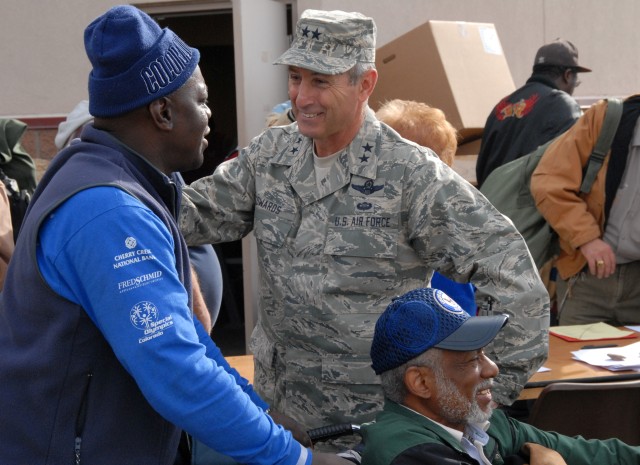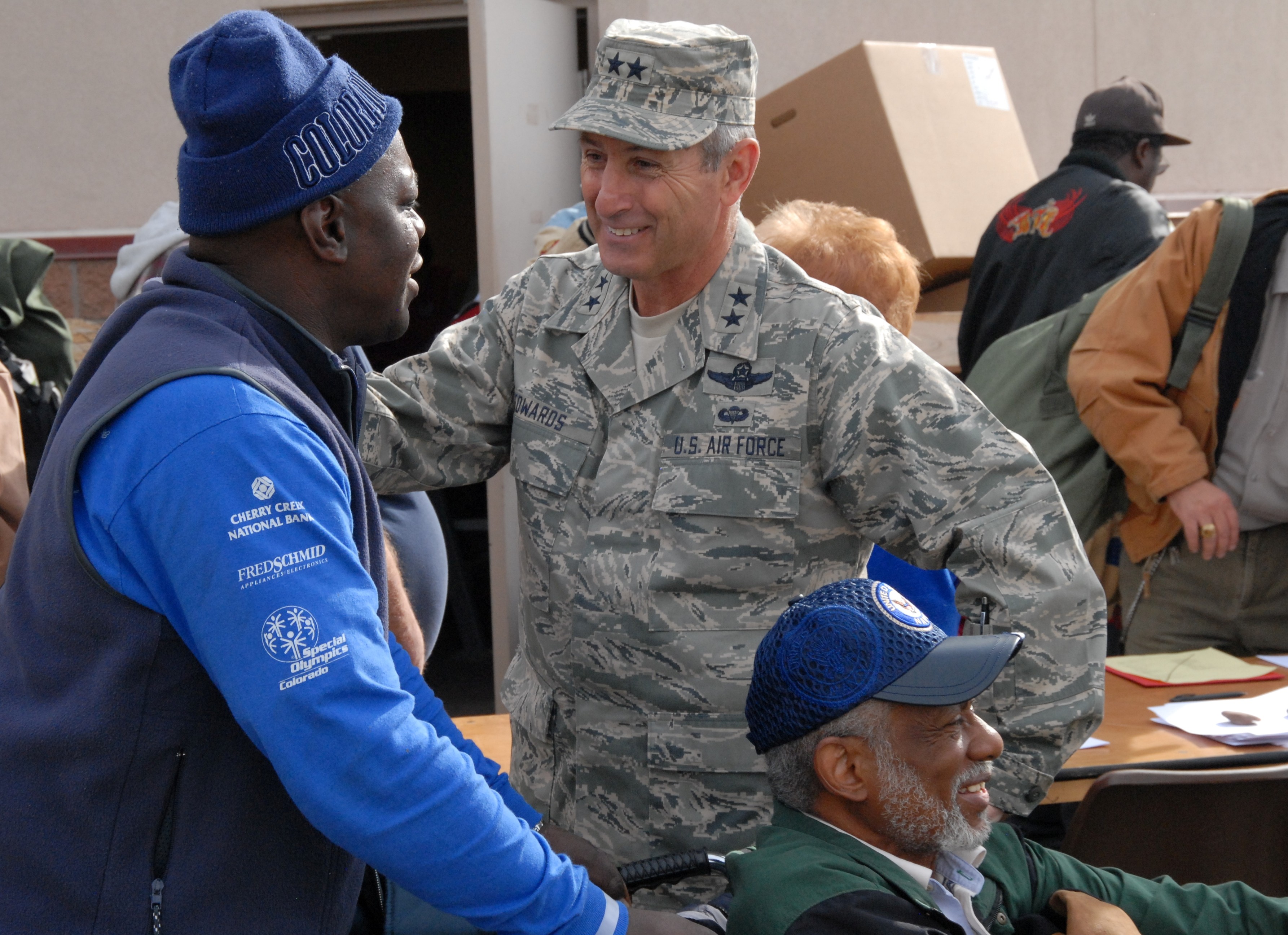
WASHINGTON (Army News Service, March 10, 2010) -- The number of veterans homeless on a typical night dropped 18 percent as the Department of Veterans Affairs entered the second year of a five-year campaign to eliminate homelessness among veterans.
"It will take the dedication, creativity and hard work of many parts of American society to end homelessness among veterans," said Secretary of Veterans Affairs Eric K. Shinseki. "But mostly it takes the resolve to say; 'It is unacceptable for a single veteran to spend the night on the streets of America.'"
The VA's Community Homeless Assessment Local Education and Networking Groups, or CHALENG, which conducts a widely-cited annual census of homeless veterans, estimated 107,000 veterans were homeless each night last year. That figure was 131,000 in 2008 and 154,000 in 2007.
"The reduction was achieved through the VA's commitment to end homelessness among veterans through enhanced collaboration with other federal, state, faith-based, veteran service organizations and community partners," Shinseki said.
VA has approximately 4,000 agreements with community partners. Last year, more than 92,000 homeless veterans were served by VA's specialized homeless programs. This is an increase of 15 percent from the previous year.
An important program that has helped veterans leave homelessness began in June of 2008 when VA partnered with the Department of Housing and Urban Development. VA provides dedicated case management to homeless veterans, and HUD provides housing vouchers to veterans and their families. Since the program, called HUD-Veterans Affairs Supportive Housing, began, 20,000 housing vouchers have been given for homeless veterans.
A recent VA study of veterans discharged from VA-funded residential rehabilitation and transitional housing programs indicated that 79 percent remained housed one year after discharge.
Many homeless veterans are treated in VA mental health programs. National policies on suicide prevention, medication management and substances abuse have improved the lives of homeless veterans.
"To eliminate homelessness, we must help more than veterans currently without a place to live," said Shinseki. "We must prevent approximately 27,000 new veterans who are at risk of becoming homeless from crossing that tragic line each year."

Social Sharing